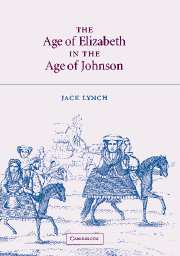Book contents
- Frontmatter
- Contents
- Preface
- Note on the texts and citation
- List of abbreviations
- Introduction
- 1 Struggling to emerge from barbarity: historiography and the idea of the classic
- 2 Learning's triumph: historicism and the spirit of the age
- 3 Call Britannia's glories back to view: Tudor history and Hanoverian historians
- 4 The rage of Reformation: religious controversy and political stability
- 5 The ground-work of stile: language and national identity
- 6 Studied barbarity: Jonson, Spenser, and the idea of progress
- 7 The last age: Renaissance lost
- Notes
- Bibliography
- Index
2 - Learning's triumph: historicism and the spirit of the age
Published online by Cambridge University Press: 22 September 2009
- Frontmatter
- Contents
- Preface
- Note on the texts and citation
- List of abbreviations
- Introduction
- 1 Struggling to emerge from barbarity: historiography and the idea of the classic
- 2 Learning's triumph: historicism and the spirit of the age
- 3 Call Britannia's glories back to view: Tudor history and Hanoverian historians
- 4 The rage of Reformation: religious controversy and political stability
- 5 The ground-work of stile: language and national identity
- 6 Studied barbarity: Jonson, Spenser, and the idea of progress
- 7 The last age: Renaissance lost
- Notes
- Bibliography
- Index
Summary
Having characterized a barbarous Middle Age and an enlightened modernity, eighteenth-century critics set about charting the progress of European culture from one to the other. Johnson offers one powerful explanation of this progress when he writes that “Nations, like individuals, have their infancy.” The metaphor – the nation as an individual growing from infancy, through childhood, and into adulthood – was one of the most beloved analogues of Johnson's contemporaries, for whom cultural phylogeny recapitulated individual ontogeny. Likening society to the growing child was an old, even ancient, metaphor; it has been traced back to the first or second century, when Lucius Annaeus Florus “divided Roman history into four periods corresponding to infancy, adolescence, adulthood, and old age.” It flourished as never before, though, in the eighteenth century, when “the revival of learning” was figured as the adolescence that separates the ignorant childhood of the Dark Ages from the enlightened adulthood of modernity.
THE GOBLINS OF WITCHCRAFT
This notion of intellectual infancy allowed cultural historians to understand and to evaluate their medieval past: the Middle Ages could be disparaged as merely infantile, or valued for glimmerings of future promise, but not accepted in its own terms. Late seventeenth- and early eighteenth-century critics vigorously and repeatedly dismissed the trappings of medieval culture as the playthings of children. Dryden, for instance, charges the early English poets with immaturity; Chaucer, he says, “lived in the infancy of our poetry, and … nothing is brought to perfection at the first. We must be children before we grow men.”
- Type
- Chapter
- Information
- The Age of Elizabeth in the Age of Johnson , pp. 38 - 56Publisher: Cambridge University PressPrint publication year: 2002

